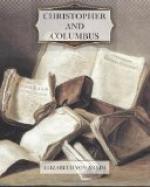CHAPTER XXX
People were so much preoccupied by the Twinkler problem that they were less interested than they otherwise would have been in the sea-blue advertisements, and when the one appeared announcing that The Open Arms would open wide on the 29th of the month and exhorting the public to watch the signposts, they merely remarked that it wasn’t, then, the title of a book after all. Mr. Twist would have been surprised and nettled if he had known how little curiosity his advertisements were exciting; he would have been horrified if he had known the reason. As it was, he didn’t know anything. He was too busy, too deeply absorbed, to be vulnerable to rumour; he, and the twins, and Mrs. Bilton were safe from it inside their magic circle of Arbeit und Liebe.
Sometimes he was seen in Main Street, that street in Acapulco through which everybody passes at certain hours of the morning, looking as though he had a great deal to do and very little time to do it in; and once or twice the Twinklers were seen there, also apparently very busy, but they didn’t now come alone. Mrs. Bilton, the lady from Los Angeles—Acapulco knew all about her and admitted she was a lady of strictest integrity and unimpeachable character, but this only made the Twinkler problem more obscure—came too, and seemed, judging from the animation of her talk, to be on the best of terms with her charges.
But once an idea has got into people’s heads, remarked the lawyer, who was nudged by the friend he was walking with as the attractive trio were seen approaching,—Mrs. Bilton with her black dress and her snowy hair setting off, as they in their turn set her off, the twins in their clean white frocks and shining youth,—once an idea has got into people’s heads it sticks. It is slow to get in, and impossible to get out. Yet on the face of it, was it likely that Mrs. Bilton—
“Say,” interrupted his friend, “since when have you joined up with the water-blooded believe-nothing-but-good-ites?”
And only his personal affection for the lawyer restrained him from using the terrible word pro-German; but it had been in his mind.
The day before the opening, Miss Heap heard from an acquaintance in the East to whom she had written in her uneasiness, and who was staying with some people living in Clark. Miss Heap wrote soon after the departure—she didn’t see why she shouldn’t call it by its proper name and say right out expulsion—of the Twist party from the Cosmopolitan, but letters take a long time to get East and answers take the same long time to come back in, and messages are sometimes slow in being delivered if the other person doesn’t realize, as one does oneself, the tremendous interests that are at stake. What could be a more tremendous interest, and one more adapted to the American genius, than safe-guarding public morals? Miss Heap wrote before the sinister rumours of German machinations




